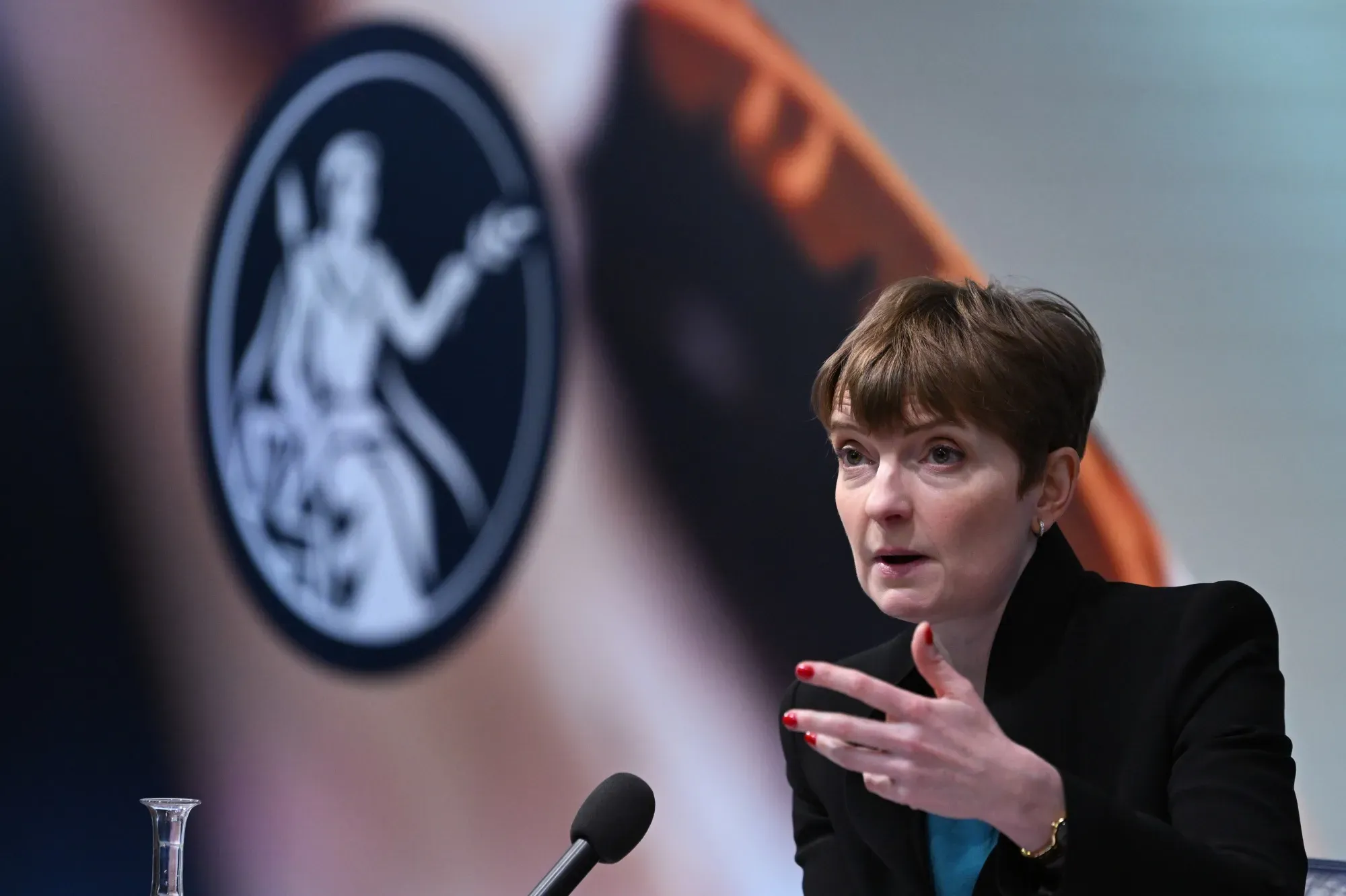Inflation Insights and Monetary Policy: Bank of England’s Strategic Moves Amid Trade Uncertainty
The global economy continues to navigate a tumultuous landscape of inflationary pressures, trade tensions, and evolving monetary policy. Recent comments from key figures in central banking, particularly from the Bank of England (BOE), reveal both caution and strategic foresight as policymakers attempt to wrestle the complexities of inflation in the UK and globally.
BOE’s Lombardelli Advocates for Rate Cuts as Precaution
In a noteworthy development, Silvana Tenreyro, a member of the Monetary Policy Committee at the BOE, recently voted in favor of cutting interest rates. Her rationale: reducing rates as a form of ‘insurance’ against potential escalation in trade wars. With the ongoing geopolitical tensions and supply chain disruptions caused by rising trade barriers, Tenreyro believes that preemptive monetary policy can stabilize the economy.
“We live in unpredictable times, and the ramifications of trade wars can linger well beyond the immediate economic impacts. A cautious approach is necessary to safeguard our economy against unforeseen challenges,” she stated in a recent conference.
The Rationale Behind Rate Cuts
Cutting interest rates is a strategy intended to stimulate economic activity by making borrowing cheaper. As companies and individuals find it less expensive to take out loans, spending and investment could theoretically rise, bolstering the economy in times of uncertainty. Furthermore, attempts to mitigate inflation through strategic rate cuts signal to the market that the bank remains proactive and responsive.
Tenreyro emphasized that such decisions are not merely knee-jerk reactions to data but rather proactive steps aimed at ensuring the UK economy maintains its stability amid external shocks. Her approach advocates for a blend of caution and action.
UK Inflation Outlook: The Call for Caution
Despite the focus on interest rates, the discussion around inflation in the UK has been increasingly multifaceted. The latest UK Consumer Price Index (CPI) figures indicate that inflation remains a top concern. Although recent data suggested a slight easing of inflation rates, many economists—including BOE officials—warn that the backdrop of global economic pressures means caution is still warranted.
“While we are seeing some positive indicators, we must remain vigilant. Inflation can be persistent, and its fluctuations are often not fully understood until they materialize in broader economic indicators,” Tenreyro warned. The sentiment reflects a general economic consensus that while there may be stabilization, the road ahead contains uncertainties.
Global Supply Chain Challenges
The volatility in the global supply chain exacerbated by geopolitical tensions, the COVID-19 pandemic, and subsequent recovery efforts has made inflationary pressures a significant concern. For the UK economy, which is heavily reliant on imports, these challenges have led to increased costs on a variety of consumer goods.
“Global market dynamics have a direct impact on our domestic inflation,” said Tenreyro, highlighting the intricate relationships between international trade, supply chain factors, and local economic conditions.
U.S. Trade Agreements: A Beacon of Progress Amid Uncertainties
Meanwhile, across the Atlantic, the United States is witnessing its own set of trade negotiations that have drawn mixed reactions from economists and analysts alike. Although trade agreements have marked progress, unresolved uncertainties still loom large, especially as the country is nearing the completion of several significant negotiations.
The U.S. administration has been active in pursuing trade deals aimed at enhancing its position in the Global Trade Network. However, the unpredictability resulting from international relations, especially with key partners, can significantly affect market sentiments and consequently inflation pressures.
The Impact of Trade Relations
Trade agreements are pivotal in shaping economic landscapes: they establish tariffs, reduce trade barriers, and can lead to improved market access for goods and services. As negotiations evolve, there is optimism that these trade agreements may stabilize prices and reduce inflationary pressures in the U.S.; however, lingering uncertainties about enforcement and compliance still hold markets back.
The lingering tension over tariffs and the trade relationship with China adds to the overall unpredictability. Economists warn that if these dynamics aren’t managed properly, they could easily lead to an uptick in inflation as costs filter down to consumers.
World Bank’s Perspective
The World Bank has weighed in on the discussions around both trade and inflation, emphasizing the need for sustainable and inclusive economic policies. According to their assessments, a robust trade policy framework coupled with prudent monetary policy can facilitate a more resilient economic environment capable of withstanding shocks.
“Countries that emphasize both trade agreements and managed inflation stand to create long-term growth and stability, which benefits their overall economic landscape and enhances global economic ties,” a senior analyst from the World Bank reiterated.
Conclusion
The monetary policies currently being debated and implemented by the Bank of England, along with the ongoing trade negotiations in the U.S., illustrate the complexities faced by global economies in an interdependent world. As central banks adjust their strategies amidst volatile economic signals, stakeholders must pay attention to both local and global factors impacting inflation and economic stability.
For the UK, the cautious approach touted by BOE officials underscores the significance of calculated decisions in the pursuit of economic resilience. In contrast, progress in U.S. trade relations showcases a proactive desire to revitalize commerce amidst challenging contexts.
As trade uncertainties continue and inflation remains a double-edged sword, central banks and policymakers must reiterate their commitment to monitoring trends closely while employing adaptive strategies to navigate the intricate web of global economics.
In the coming months, market observers will keep a close eye on further developments from both sides of the Atlantic, eagerly awaiting the next moves from leading central banks as they seek to balance interest rates and trade agreements against the backdrop of balancing inflationary risks.







